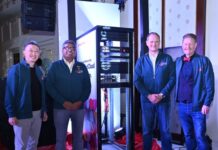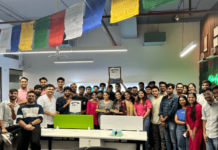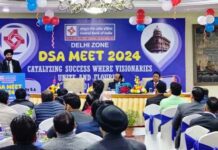- When was Flexibees launched and What was the idea behind the launch of Flexibees?
FlexiBees is a company founded in 2017 by three of us batchmates from IIM Bangalore ’08. At its heart it is a venture that aims to change the way work is done, to make it more flexible.
When we started out we saw two big problems –
Firstly, businesses today need agile models of hiring that enable them to hire expert talent, quickly and cost-effectively, but they struggle to find this. For example, you could be a startup or a small business wanting to hire good talent but either cannot afford full-time ones, or do not want to commit to full-time talent, or you could be an enterprise wanting to hire specialised skills for projects, or do quick vacancy filling. Both these cases need non-traditional hiring models and access to a pool of high-quality workers who are willing to work flexibly; both of these are unavailable today.
The second big problem is that there is expert talent looking for flexible work options but unable to find them. Chief among these are qualified women who have dropped out of the traditional workforce but are looking for a way back in via flexible options like part-time and remote-working. India’s female labourforce participation is amongst the lowest in the world at 23%, and 48% of women who return from maternity leave quit within the first 4 months, a key reason being lack of flexible work options. It is also a global problem with workforce participation among educated women having dropped even in developing countries over the last decade. Increasingly, even women currently in the workforce, juggling over-stretched schedules, are looking for flexibility and balance, as are emerging segments such as millennials, parents, etc. They do not have many options that do justice to their education and qualifications.
FlexiBees is a solution to both these problems, we provide businesses with expert talent via flexible and affordable models that allow them to hire quickly and cost-effectively AND provide flexible work opportunities for qualified women who want to balance their professional and personal priorities.
- Who founded Flexibees?
We are three of us in the co-founding team, friends & batchmates from IIM Bangalore, class of 2008. We worked at various companies after graduating before we got together to found FlexiBees in 2017.
I, Shreya, have worked with Unilever post-MBA, and have done stints in both Sales and Marketing while there. In Sales, I have led teams, developed new sales channels, etc and then gone on to a Marketing role where I worked on creating new mixes and developing positioning & communication for new brand launches. At FlexiBees, I lead Sales, Marketing, and External Communications.
Rashmi, a Computer Science engineer, worked as a product developer at i2 technologies. After MBA, she has worked at P&G, on Consumer Insights i.e. designing consumer penetration & upgradation strategies for brands, and was heading Digital & ecomm Media for APAC markets at the time of leaving. At FlexiBees, she leads Business Delivery i.e. Design & Execution of our Recruitment vertical to deliver best-fit candidates to clients, as well as Technology and Digital.
Deepa, a CA by qualification, has built businesses from scratch at Aptech, and as a management consultant at KPMG, developed deep expertise in corporate finance, brand entry strategies, business plans & financial models for MNCs. At FlexiBees, she leads Talent Acquisition, Operations, Finance & Legal.
Each of us had slightly different reasons to start, but a couple of things were in common: we wanted to solve the problem of talented professionals, such as qualified women wanting to return to work, not being able to find suitable and career-relevant work opportunities that allowed them the flexibility they needed. It seemed like a huge waste of talent. The second thing in common was the business expertise that we had built over the years and which made us very aware of the problems businesses face, as well as potential solutions to those. Very soon after hitting upon the idea, we realised how useful this underutilised talent pool could be for businesses if we could only find a way to shape and fit it to their requirements & constraints. And that’s where the journey began.
- How FlexiBees is different from other Talent Platforms
There are broadly two kinds of talent platforms: Job boards like Naukri and Gig Marketplaces like Upwork
- Job-boards primarily provide access to full-time talent via resumes or profiles that the client then has to screen and evaluate. It takes a lot of effort from the client’s end, and is expensive since the hiring is full-time and permanent. Our first differentiation vs these is in the core offering itself of flexible i.e. part-time, project-based talent that proves to be much more agile and cost-effective for businesses than full-time hiring, especially for start-ups and small businesses, and also for larger companies in many cases
- Gig marketplaces provide freelance talent for largely standard roles like coding, graphics, content writing, etc. One differentiation vs these is that we provide talent for all roles, including non-standard complex ones like Marketing, Sales, Investment Banking etc, which businesses would be hard-pressed to find on a gig platform. This means you can hire an expert Sales professional from our platform who would work exactly as an in-house employee would, only for part-time hours and in a remote-based contractual arrangement, all of which are beneficial to businesses.
However, our biggest differentiator vs both these kinds of platforms, is that we take on the onus of finding the best-match talent via an end-to-end selection process, that ensures businesses save 90% of the time they would have spent hiring from other sources. Both types of platforms mentioned above require a lot of effort from businesses in searching, screening and evaluating. We cut that time to a large extent, which is further underlined by the fact that while the industry average for the number of resumes a hiring manager has to go through before hiring is 36, on our platform that number is 1.75. This is because we vet our candidates rigorously and only send those to the client who are best-fits for the role on multiple parameters. The rigorous multi-faceted selection also ensures that the quality of our match is significantly better than what most job-boards and talent marketplaces are able to provide, as a result of which 65% of our business comes from repeat clients.
- This recent disruption has made us realize the need for digital transformation across the industries. Do you think this general shift towards remote and Flexi working will be effective for companies?
Yes, remote and flexible working are very beneficial to businesses and critical to have in the talent mix. Remote talent can unlock various advantages such as being able to hire the best talent without geography barriers, getting cost savings due to smaller offices spaces and reduced spends on facilities, the opening up of the hiring pool to new segments such as qualified women out of the traditional workforce and freelancers for whom remote working is a way of life, and better talent retention by being able to offer a better work-life balance to employees.
In addition to these remote-working advantages, part-time models bring in huge affordability advantages, especially for start-ups and smaller businesses for whom hiring good but expensive talent is a huge problem. And finally, project-based / contractual talent can bring huge agility to businesses by allowing them to hire quickly, scale-up and down quickly. This means they can experiment with new businesses models and products, bring in specialised skills not available in-house, increasing their innovation and speed to market while saving on cost.
In today’s scenario, due to the pandemic, consumer priorities, purchase behaviors, media consumption etc all have undergone dramatic shifts. Businesses today have to quickly adapt their products, services, models to these new realities all the while battling bottomline pressures; flexible talent and models can be crucial in these times.
- What trends are you foreseeing in HR space in the coming years?
The rise of the flexible workforce ie. remote, flexi-time, part-time, freelance, is definitely one such trend, which in turn will give rise to alternate ways of looking at hiring, work management, career progressions, compensation structures, workforce motivation and organisation culture building. The second trend is the skilling revolution, due to the changing nature of the jobs we do and increased access to skilling platforms, everyone will have the opportunity to be in charge of their own career trajectories.
The underlying forces behind these trends are also worth noting
- Evolving talent that wants more autonomy and balance will drive the adoption of flexible working models
- New consumer technologies and increased automation will lead to the dramatic changes in the nature of our jobs, giving wind to the skilling revolution
- Data and data models will power everything, from hiring to workplace and workforce analytics, to mixed teams of humans and AI, changing HR job descriptions forever
- What is the impact on hiring? How have you entertained hiring during these tough times?
For us, the impact has been minimal. While for the first two months i.e. April and May, it did slow down, it is picking up again; with the unlocks happening over May and June, we have seen our third-highest ever inflow of leads i.e. new requirements in June. We see that businesses who earlier might not have been entirely comfortable with remote working are coming to us now, and even larger companies are showing increased interest in hiring contractual talent. We are gearing up for it by investing more in marketing and sales ourselves and are hopeful it will pay off. Our belief is that part-time, project-based and remote hiring models will be hugely relevant in the future, giving businesses the tools they need to survive and thrive, and talent the opportunity to continue building careers even outside of the traditional workforce.































